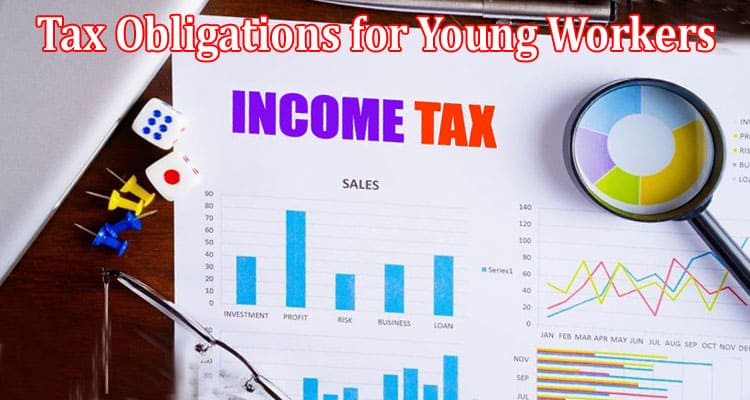Understanding Tax Obligations for Young Workers
For many young people, starting their first job is an exciting milestone. However, young workers need to understand their tax obligations and how they may impact their paychecks. Even if you are a minor, you are still required to pay federal taxes on your earnings, and possibly state and local taxes as well.
It is the responsibility of employers to deduct taxes from their employees’ paychecks and transmit the withheld amounts to the government. This means that even if you are a minor, your employer will likely withhold federal taxes from your paycheck. In this article, we’ll explore the basics of tax obligations for young workers, including what taxes you can expect to pay and how to file your taxes as a minor.
Taxes that Minors Can Expect to Pay
Federal Taxes
Minors who work are required to pay federal income taxes on their earnings unless they are exempted from doing so. The amount of federal income tax you owe depends on your income and tax bracket. Your employer is responsible for withholding the appropriate amount of federal taxes from your paycheck.
State Taxes
In addition to federal income taxes, minors may also be required to pay state income taxes. The rules for state income taxes vary by state, so it’s important to check with your state’s tax authority to determine your obligations.
Local Taxes
Some cities and counties also impose local income taxes on workers, including minors. Like state income taxes, local taxes are governed by local tax laws and may vary by location.
Social Security and Medicare Taxes
Minors who work for an employer are also subject to Social Security and Medicare taxes. These taxes fund the Social Security and Medicare programs and are calculated as a percentage of your earnings. Your employer is responsible for withholding these taxes from your paycheck.
Special Rules for Self-Employment
If minors are self-employed, they may have tax obligations on their earnings. Along with federal income taxes, they are also required to pay self-employment taxes that support the Social Security and Medicare programs. Since the rules governing self-employment taxes can be intricate, it is crucial for self-employed minors to seek professional advice.
Tax Forms that Minors Need to Know
W-4 Form
The W-4 form is a federal tax form that employees, including minors, need to complete when they start a new job. It is used by employers to determine how much federal income tax to withhold from your paycheck. Minors should review their W-4 form annually and update it if their personal or financial situation changes.
I-9 Form
The I-9 form is a federal document used to authenticate an employee’s authorization to work in the United States. Minors, like all employees, are required to complete an I-9 form when they start a new job. The form requires the employee to provide proof of their identity and eligibility to work in the US.
W-2 Form
The W-2 form is a tax form that employers are required to provide to their employees, including minors, by January 31st of each year. It shows the amount of money you earned during the previous year and the amount of taxes that were withheld from your paycheck. You need this form to file your federal and state income tax returns.
1099-MISC Form
Minors who are self-employed may receive a 1099-MISC form from clients who paid them more than $600 during the tax year. This form shows the amount of money the client paid to the minor and is used to report self-employment income to the IRS.
1040 Form
The 1040 form is the federal income tax return form that minors (and all taxpayers) need to file with the IRS by April 15th of each year. The form is used to report your income, deductions, and credits for the tax year, and to calculate the amount of taxes you owe or the refund you will receive.
Tips for Filing Taxes as a Minor
Determine Your Filing Status
Minors need to determine their filing status when they file their taxes. The two most common filing statuses for minors are “single” and “dependent.” If you are claimed as a dependent on your parent’s tax return, you may not be required to file a tax return if your income is below a certain threshold.
Claiming Dependents
Minors who provide more than half of the support for a dependent, such as a child or a family member, may be able to claim that dependent on their tax return. This can result in valuable tax credits and deductions, such as the Child Tax Credit.
Tax Credits and Deductions
Minors may be eligible for certain tax credits and deductions, such as the Earned Income Tax Credit or the Student Loan Interest Deduction. It’s important to review all available tax credits and deductions to ensure you are not missing out on potential tax savings.
Choosing a Tax Preparation Method
Minors can prepare and file their taxes on their own, or they can seek assistance from a tax preparation service or software. It’s important to consider the complexity of your tax situation, your comfort level with tax preparation, and the cost of the different options when choosing a tax preparation method. It’s worth noting that while minors are generally required to pay taxes on their income, there are certain religious groups, such as the Amish, who are exempt from paying Social Security and Medicare taxes. However, they are still required to pay income taxes on their earnings and may need to consult with a tax professional to ensure compliance with tax laws.
Seeking Professional Help
If you have a more complex tax situation, or if you are unsure about how to file your taxes, it may be a good idea to seek professional help from a tax accountant or tax preparation service. They can help you navigate the tax code and ensure that you are not missing out on valuable tax credits and deductions.
In Conclusion
Understanding tax obligations is an essential part of being a young worker. While tax laws may seem complex and overwhelming, minors need to educate themselves about their tax obligations, including the types of taxes they may need to pay and the tax forms they need to file. By taking the time to learn about tax laws and seeking assistance from tax professionals when needed, young workers can ensure compliance with tax laws and potentially benefit from valuable tax credits and deductions. It’s never too early to start building good tax habits and taking control of your financial future.




